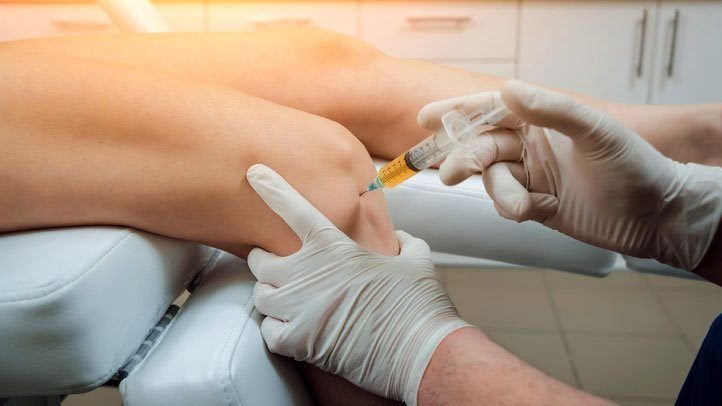You are likely to suffer from osteoarthritis of the knee when your knee cartilage breaks down, resulting in joint damage. As a result, a simple movement like standing might be painful. Dr. Mahan Ostadian, an interventional pain management expert, opines that therapeutic pain injections might help provide quick relief and delay possible knee surgery. Though the injections might not offer a permanent solution, they may allow you to enjoy a pain-free life.
What are the therapeutic injections available for knee arthritis?
· Cortisone injections
Your doctor will most likely recommend a cortisone injection when you need quick and temporary relief from your painful symptoms. The temporary relief may allow you to weigh your options with physical therapy as you postpone possible knee surgery to a future date. The injections work by addressing the inflammation causing the pain and swelling in your knee. Since the treatment is temporary, a cortisone injection’s effects may last approximately three months or longer.
· Hyaluronic acid injections
Unlike cortisone injections that offer quick relief, hyaluronic acid injections take time to provide relief. However, their positive effects may last longer than cortisone injections. Also referred to as viscosupplementation injections, hyaluronic injections might be your best option when the healthcare provider needs to administer lubricating fluid into your affected knee joint. The lubrication decreases pain and inflammation, enhancing your knee function and decreasing your joint’s degeneration process.
· Stem cell injections
Experts say that stem cells develop into cartilage cells when your doctor injects them into your osteoarthritic knee. The stem cells’ development into cartilage cells minimizes your knee pain, restraining your cartilage degeneration, thus suppressing inflammation. The stem cells your doctor uses during the treatment originate from your blood, fat tissue or bone marrow.
· Platelet Rich Plasma Injections
The treatment takes advantage of your blood’s healing properties to heal your damaged tissues. During the procedure, your healthcare provider draws a sample of your blood with significant platelets concentration and injects it into your affected knee joint to minimize pain and accelerate your healing process.
What do knee injections involve?
Knee injections are quick to administer. However, before the treatment, your doctor will:
· Clean your knee and the surrounding areas before administering local anesthesia
· Position the needle on the affected joint
· Administer the medication into your painful joint
Though you are likely to experience mild discomfort, especially when the medical expert inserts the needle in your painful joint, knee injections are rarely uncomfortable. In other instances, your doctor might opt to draw minimal amounts of joint fluid to ease the pressure on the joint.
What should you expect after the treatment?
Knee injections do not require admissions. As a result, your doctor might allow you to go home immediately after the process. To accelerate your healing process, the medical professional might advise you to look out for possible side effects, take pain-relieving medications and avoid strenuous activities, hot tubs or anything likely to cause infection through your injection site.
Total knee replacement will be your doctor’s final recommendation after medications and injections fail to offer relief to your painful symptoms. Talk to your physician to inquire about the injections to relieve you from your debilitating knee arthritis symptoms.









